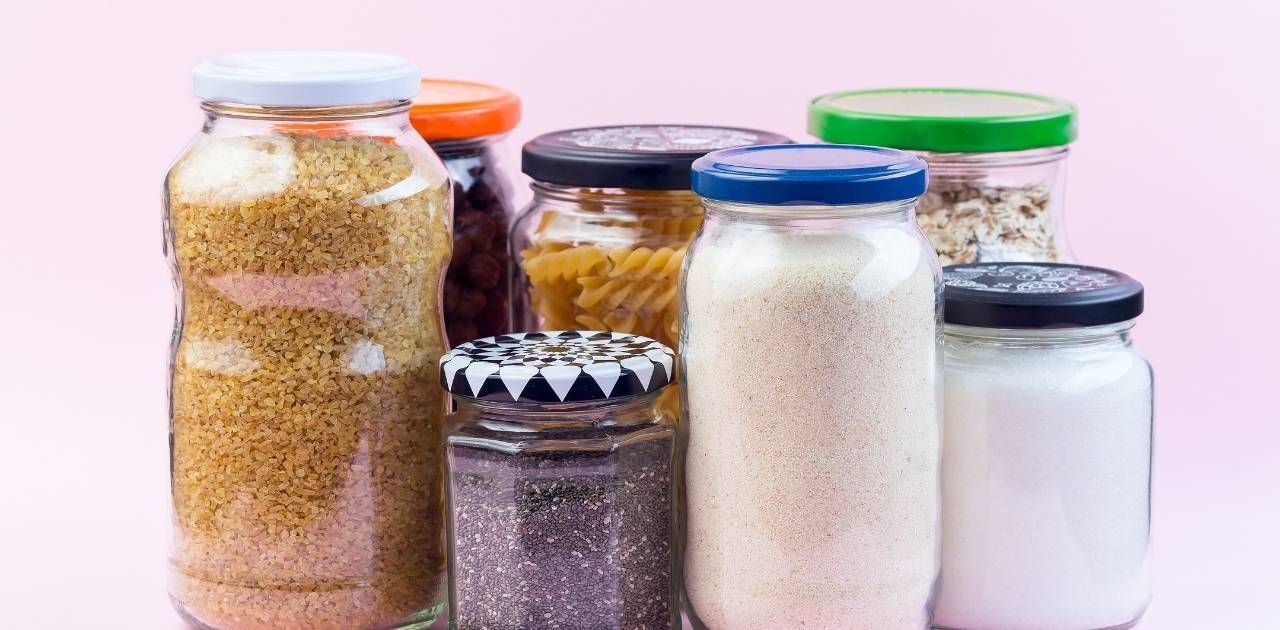Reusing glass jars and bottles is an efficient way to contribute to environmental preservation. Glass, despite being largely replaced by plastic in recent decades, is gaining prominence again due to its ecological advantages. Using glass avoids excessive waste generation and minimizes environmental impact. Let's explore how this simple action can make a big difference in reducing plastic consumption and preserving the environment.

The Rise of Plastic and the Fall of Glass
In the 1980s, plastic, especially PET bottles, began to be widely used as a substitute for glass. Because it was lighter and stronger, plastic quickly gained acceptance, and glass became increasingly rare in everyday use. Glass bottles, once returnable and widely used, were replaced by disposable plastic.
However, over time, the harmful effects of plastic have become more evident. The mass consumption of plastics, combined with improper disposal, has created a critical environmental problem. Landfills are overwhelmed and plastic, because it is non-biodegradable, remains in the environment for centuries, contaminating ecosystems and polluting the oceans.
Reduction and Reuse Before Recycling
Recycling glass is a viable solution to excess waste, but it should not be seen as the first option. Reducing consumption and reusing materials should always be the priority. Before thinking about throwing away glass, it is important to consider ways to reuse glass containers, such as jars and bottles.
Unlike plastic, glass is a material that does not absorb odors or flavors. This means that it can be easily reused, as long as it is sanitized and sterilized. Reusing glass jars is a simple way to reduce the need for new packaging and, at the same time, contribute to the circular economy.
The Advantages of Glass for Storage
One of the great benefits of glass is its durability. It does not alter the flavor of food and can be used several times without compromising the quality of the stored contents. Here at home, for example, I use glass bottles to store grains and flour, because the glass seals very well and prevents moisture from spoiling the food.
Additionally, the lids can be easily replaced, ensuring the durability of the jars and bottles. Many lids, whether made of metal or plastic, can rust or break, but replacing these lids is a simple solution that keeps the glass in perfect condition for reuse.
Incentives for Glass Reuse
Many companies are adopting sustainable practices and encouraging customers to return used glass jars for reuse. One practical example is Doce Sabor Geleias Artesanais, which offers a discount on future purchases to customers who return glass jars. This type of action not only helps reduce waste, but also promotes a culture of conscious consumption.
When you return glass jars and bottles, the packaging goes through a sterilization process, the lids are replaced, and they can be used again, eliminating the need to produce new packaging. This not only helps reduce the amount of waste generated, but also reduces the demand for new materials.
Creativity with Glass: From Storage to Crafts
Reusing glass doesn’t have to be limited to food storage. Many people are using glass jars and bottles in home decor and craft projects. Glass bottles can be transformed into amazing decorative pieces with a little creativity and skill.
You can create lamps, vases, candle holders, and more. Not only do these projects help you reuse materials that would otherwise be thrown away, but they also provide an opportunity to personalize your home or even start a new business in the sustainable craft industry.
Those interested in learning more about how to transform glass bottles into decorative pieces can benefit from specific courses in this area. These courses teach techniques that allow you to transform glass into art, offering a new perspective on the reuse of materials.
Glass Recycling: A Resource for the Future
While glass recycling should not be your first choice, it still plays a crucial role in reducing environmental impact. Unlike many materials, glass can be recycled without losing any of its properties. This means that every kilo of recycled glass can be turned into a new kilo of glass, without the need to extract new raw materials.
In Brazil, there are recycling points spread throughout cities that collect recyclable materials, including glass. These collection points send the materials to cooperatives that sort them and ensure that they are recycled correctly. The collected glass is crushed and transformed into powder, which will be used to make new packaging.
However, it is worth remembering that, even with recycling, it is still necessary to consume consciously. The less glass we discard, the less we will need to recycle it.
The Positive Impact of Small Actions
Every single action can have a big impact on preserving the environment. Reusing glass jars and bottles, avoiding excessive use of plastics, and adopting recycling practices are small steps that, together, make a significant difference.
If each person makes an effort to reduce consumption and reuse available materials, we can reduce our environmental impact and create a more sustainable future for future generations.
Furthermore, the use of glass, with all its advantages, contributes to the creation of more conscious consumption habits. By incorporating sustainable practices into our daily lives, we are encouraging changes that can generate positive impacts in the long term.
Final Considerations on the Use of Glass
Glass is an extremely valuable material when it comes to sustainability. Its durability, ease of reuse and ability to be recycled indefinitely make it an environmentally friendly choice. However, it is essential to adopt a responsible approach to consumption: reduce, reuse and recycle, in that order of priority.
Through simple actions, such as reusing glass jars and bottles at home, returning packaging to companies that reuse it, or even using glass in craft projects, we are contributing to building a cleaner and healthier planet.
If you’re looking for ways to contribute to environmental preservation, start rethinking the use of glass in your life today. Whether it’s for storing food or creating decorative pieces, glass is a sustainable choice that’s full of possibilities.
Check out other interesting facts about recycling clicking here.
Learn how to make art by recycling, Click here.

